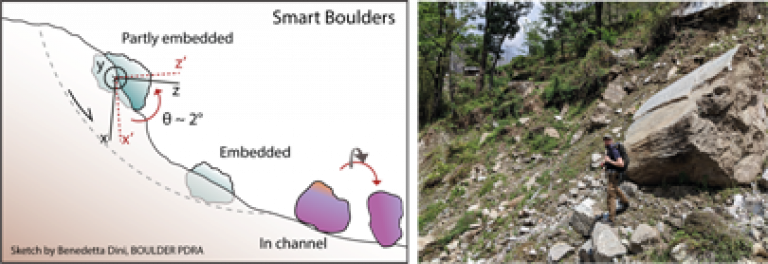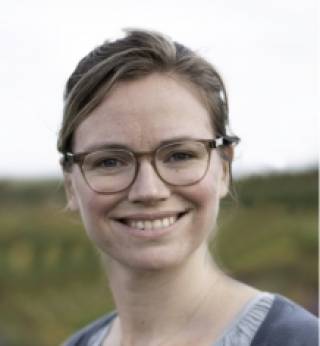IRDR monthly seminar: Smart boulders for landslide-flood monitoring and early warning
03 March 2020, 5:00 pm–6:00 pm

Landslides and floods are globally occurring natural hazards that pose significant threat to human life and sustainable development. Join us at our monthly seminar to hear how the BOULDER project is using smart tagging to help monitor and understand these hazards.
Event Information
Open to
- All
Availability
- Yes
Organiser
-
Peter Sammonds – UCL Institute for Risk and Disaster Reduction
Location
-
Room 9 Garwood Lecture TheatreSouth WingGower StreetLondonWC1E 6BTUnited Kingdom
The most severe losses due to landslides occur in developing countries of Asia with mountainous terrain, earthquakes and monsoonal climates, such as Nepal. Landslides and rockfalls detach large boulders downslope that then block roads, destroy buildings and kill people. On entering river channels, boulders may be bulldozed by large floods and block hydropower infrastructure, jeopardising electricity supply and the economy. So boulders amplify the impacts of both landslides and floods. Tagging boulders with smart devices can help in understanding these hazards.
The BOULDER project (accounting for BOUlders in Landslide-flood Disaster Evaluation and Resilience) is developing innovative low-power, low cost smart devices to (1) monitor hazardous boulder movement, (2) improve understanding of landslides and floods and, (3) provide early warning of hazardous movement in the landscape. BOULDER is led by a multidisciplinary team of scientists in the UK and works with Nepali project partners in hazard management to translate research into practice.
Speaker: Dr Georgina Bennett, Lecturer in Physical Geography, University of Exeter

Georgie's passion for geomorphology started during her BSc and MSc in Geography at Durham University. In 2009, she moved to ETH Zurich for her PhD on landslide and debris flow processes in the Alps, which resulted in a new model for sediment cascades and debris flow hazard. She then moved to the USA where she worked on landscape evolution in California and the response of catchments in Colorado to extreme flood events. She returned to the UK in 2017 as lecturer at UEA before moving to Exeter in late 2019. She won the 2020 European Geosciences Union award for Outstanding Early Career Scientist in Geomorphology.
 Close
Close

